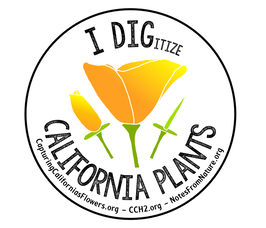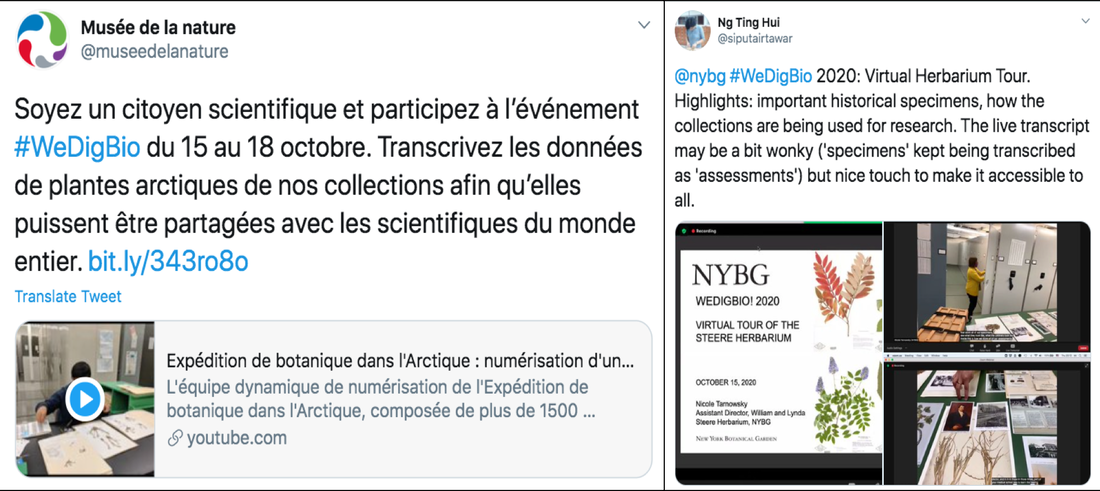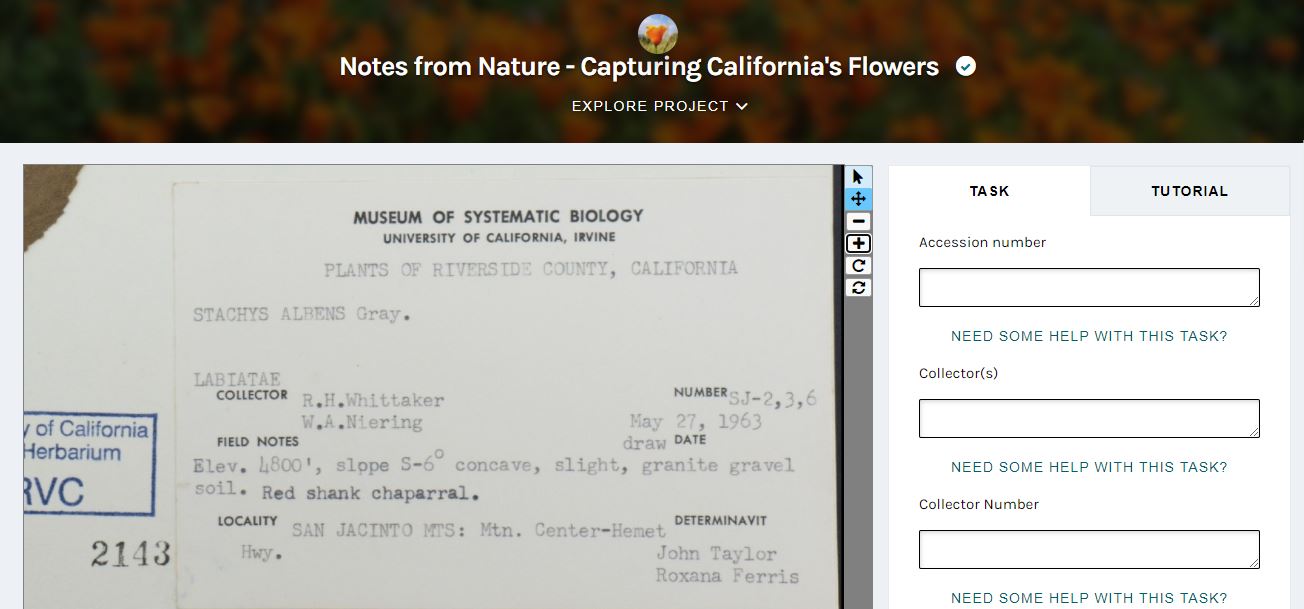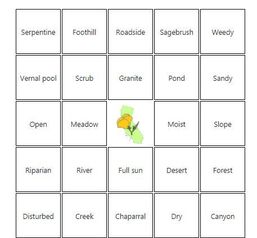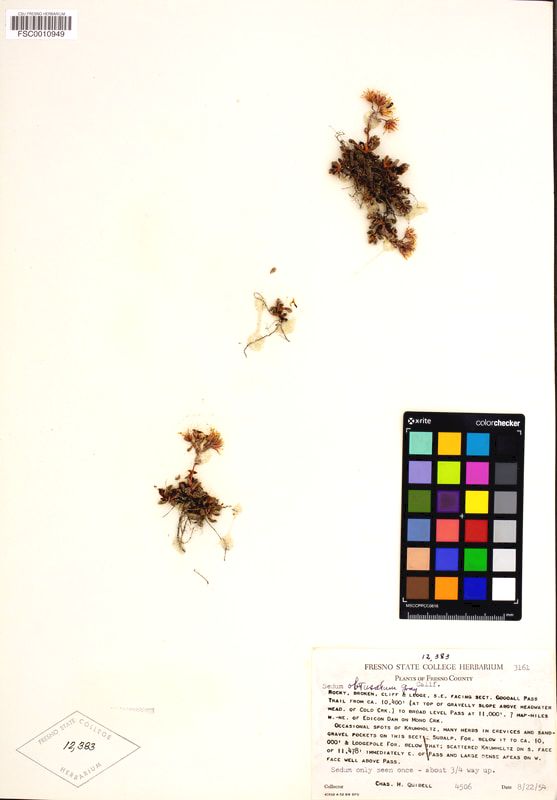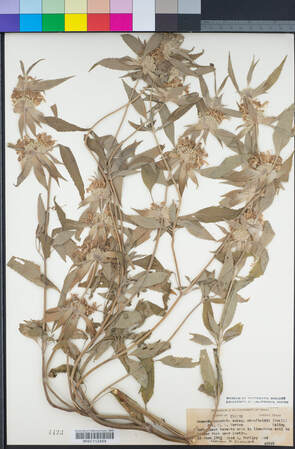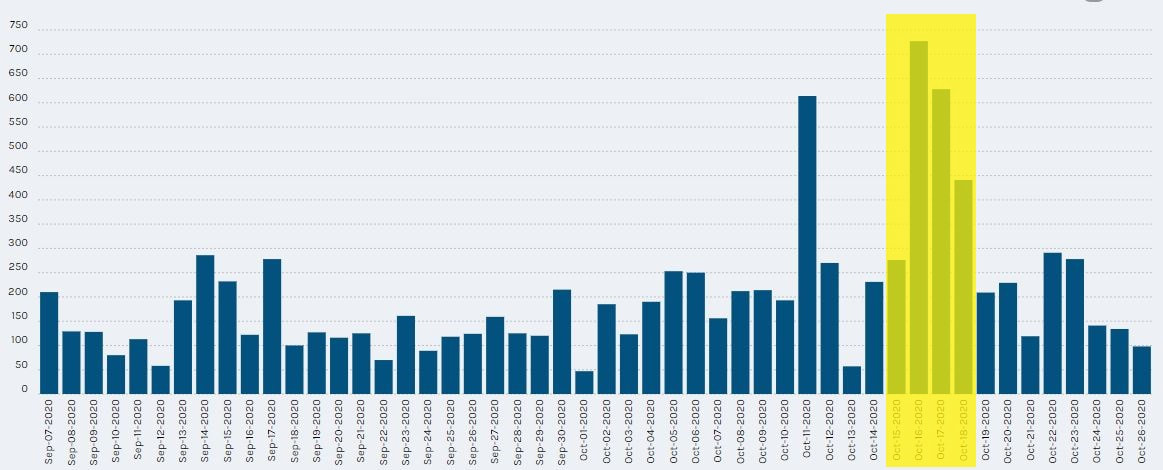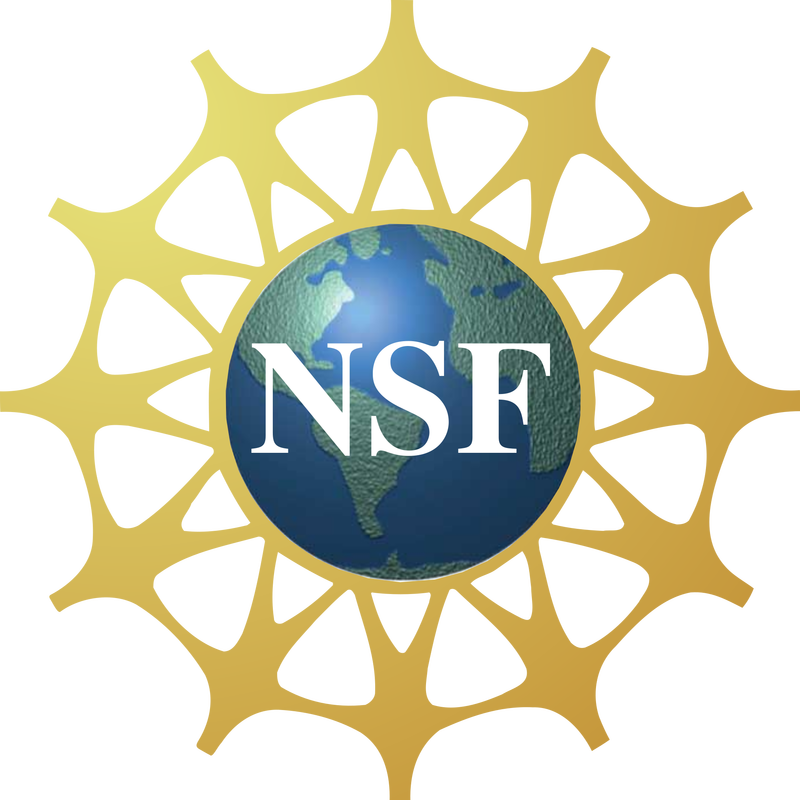Socially distancing can't keep us from socially digitizing California plants! For the second year running, the California Phenology Network coordinated events as part of WeDigBio, the Worldwide Engagement for Digitizing Biocollections. This annual event unites biodiversity specimen collections across the globe—from herbaria in Paris to mammal collections in Australia—in digitization events involving the community.
This year, the CAP Network went 100% digital. We held two events: WeDigBio "Happy Hour" on Thursday, October 15th at 7:00 PM, and "Waking up with WeDigBio" on Saturday, October 17th at 10:00 AM. Across both events, we had over 95 participants logging on to Zoom and learning about the importance of herbaria. Participants received a short introduction to herbaria and how they are used for research, and the CAP project manager gave a virtual tour of the Robert F. Hoover Herbarium at Cal Poly, San Luis Obispo. After a tutorial and introduction to Notes from Nature, we got to work transcribing specimen label data.
| Far from a dull work session, we spiced up the online events with games and friendly competitions, including "habitat bingo" and a leaderboard for finding the oldest, newest, largest, smallest, and other interesting specimens while we transcribed. The competition was fierce at times, especially for largest specimen, requiring multiple audience votes. We discovered numerous unique and surprising specimens, such a specimen collected in 1877 and a specimen so big that the collector had to cut off some leaves and cover part of the label to get it on the sheet! |
At the close of the WeDigBio weekend, held from Thursday to Sunday, October 15-18, the online citizen science community transcribed a whopping 2,072 records, putting us that much closer to fully transcribing the thousands of specimens we are imaging as part of the CAP project. With each transcription, more valuable botanical data are made available for researchers, educators, and the public, helping us understand the spatiotemporal distribution of plants and how they change. Equally importantly, WeDigBio participants voiced having a lot of fun during the process, fostering positive associations and awareness of herbaria as interesting and irreplaceable data sources.
